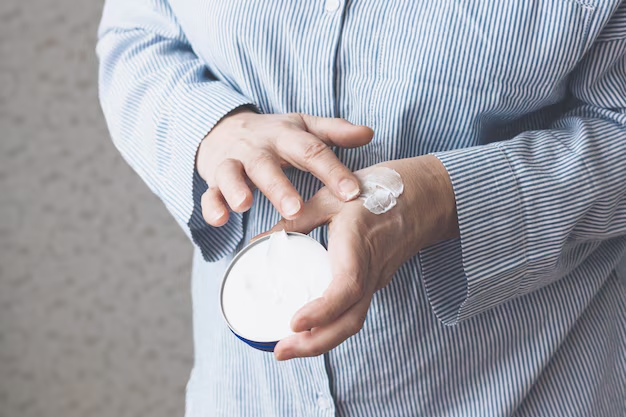Your Guide to How Can You Tell If You Have Parkinson's
What You Get:
Free Guide
Free, helpful information about Parkinsons FAQ and related How Can You Tell If You Have Parkinson's topics.
Helpful Information
Get clear and easy-to-understand details about How Can You Tell If You Have Parkinson's topics and resources.
Personalized Offers
Answer a few optional questions to receive offers or information related to Parkinsons FAQ. The survey is optional and not required to access your free guide.
Recognizing Signs of Parkinson's: What You Need to Know
If you’ve found yourself increasingly curious whether certain symptoms might indicate the onset of Parkinson’s disease, you’re not alone. Parkinson's disease is a progressive nervous system disorder that primarily affects movement. Its symptoms develop gradually and can often go unnoticed until they become more pronounced. However, early detection can make a significant difference in managing the condition effectively.
Common Symptoms to Watch For
You might be wondering how Parkinson's manifests in its early stages. Understanding the typical symptoms can help you decide whether it's time to consult a healthcare professional:
Tremors: Perhaps the most recognized sign, tremors usually begin in a limb, often a hand or fingers. These tremors can occur when you are at rest and may decrease when the limb is in motion.
Rigidity: Stiffness in the limbs and trunk can become evident, reducing your range of motion and causing discomfort.
Bradykinesia: This refers to the slowing down of movement, making routine tasks more time-consuming and difficult.
Balance and Posture Issues: As the disease affects your balance, you might notice a stooped posture or a tendency to fall.
Changes in Speech and Writing: You may speak softly, quickly, or slur your words. Likewise, writing might become small and difficult to read.
Seeking a Medical Diagnosis
While recognizing symptoms is a helpful first step, a medical diagnosis is crucial for confirming Parkinson’s disease. This typically involves:
Neurological Examination: A doctor will evaluate your symptoms and medical history, often looking for characteristic signs like tremor, rigidity, and balance issues.
Imaging Tests: Although there is no definitive test for Parkinson’s, brain imaging can help rule out other disorders.
Navigating Financial and Support Resources
Upon receiving a diagnosis, many people find themselves confronted not only with health challenges but also with new financial considerations. Accessing the right resources can ease this burden, allowing you to focus on your health and well-being.
Financial Assistance and Support Options
For those living with Parkinson’s, managing finances can become challenging. Here are some avenues to explore for financial support:
Government Aid Programs: Programs like Social Security Disability Insurance (SSDI) might be applicable if Parkinson’s significantly impacts your ability to work.
Medicare and Medicaid: These programs can help cover the costs of treatment and medications.
Debt Relief Solutions: Consider consulting with a financial advisor who specializes in health-related financial planning to explore debt consolidation or relief options that best suit your situation.
Educational Grants: While typically geared towards younger individuals, some grants may be available for continued education on managing Parkinson’s, providing invaluable resources for patients and caregivers.
Remember, help is available, and seeking it can considerably lighten the load that comes with managing a chronic condition like Parkinson’s.
Here’s a simple guide to potential resources and support networks that may assist you:
- 🏛 SSDI Benefits: Check eligibility for assistance based on medical condition.
- 💊 Medicare/Medicaid: Coverage for treatment and medications.
- 💸 Debt Management: Consult services specializing in health-induced financial challenges.
- 📚 Educational Support: Look for grants or programs aimed at patient education and family support.
By staying informed and proactive, you can ensure that you or your loved ones dealing with Parkinson’s receive both the medical care and financial support needed.
What You Get:
Free Parkinsons FAQ Guide
Free, helpful information about How Can You Tell If You Have Parkinson's and related resources.

Helpful Information
Get clear, easy-to-understand details about How Can You Tell If You Have Parkinson's topics.

Optional Personalized Offers
Answer a few optional questions to see offers or information related to Parkinsons FAQ. Participation is not required to get your free guide.


Discover More
- Are There Environmental Causes Of Parkinsons
- Can Alcohol Cause Parkinson's
- Can Concussions Cause Parkinson's
- Can Concussions Cause Parkinson's Disease
- Can Dogs Get Parkinson's Disease
- Can Dogs Get Parkinsons
- Can Dogs Have Parkinson's
- Can Dogs Have Parkinson's Disease
- Can Females Get Parkinson Disease
- Can Head Trauma Cause Parkinson's
